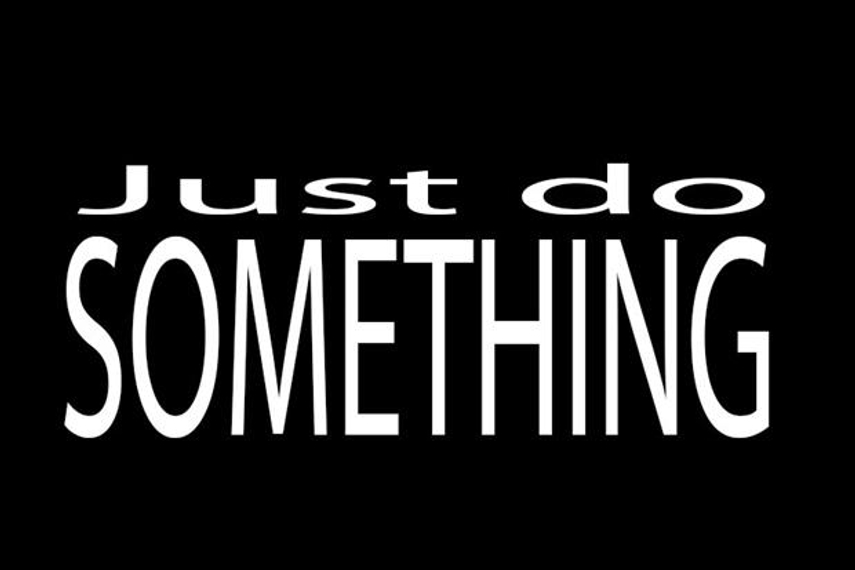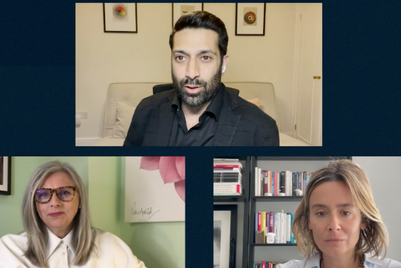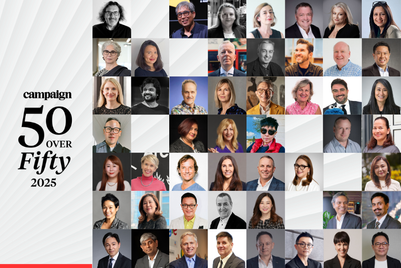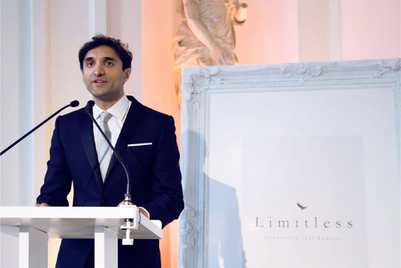About one million years ago, as the Earth's surface was cooling, I embarked on the mandatory post-university foreign trip. For me, it was three months travelling round the US on the ancient and underfunded Amtrak train system, accompanied by my brother Ed. We slept on trains, in stations, in hostels and with friends of friends of relatives ... anywhere we could.
One day, we stumbled across a store called Banana Republic; in those days, a fascinating cross between a travel store and men's fashion boutique. It sold functional, cool kit that made you feel like you could travel to the source of the Amazon, but in style - a far cry from the preppy stuff it sells (and I buy) today.
As I approached the till with what would turn out to be the first of a long line of Banana Republic

safari kit, the bright-eyed sales guy clocked my accent and asked, as I was from the UK, would I mind if he asked me a question.
I did a mental eye-roll and braced myself for something along the lines of "Do you know the Jones family from Newcastle?"
"Of course not," I beamed back. "Be my guest."
He pulled the blue plastic slider over my credit card, with that unforgettable double-thunk noise, and looked up at me earnestly.
"What chance do you really think there is that the European project will end up in a sustainable single currency, without real political union?"
Gulp. Not the question I was expecting. I did a double-take to see whether I was unwittingly taking part in an episode of Candid Camera, but his gaze was unblinking and sincere.
I managed to answer his question to some degree of satisfaction, although I'm pretty sure back in the days of the European Community and the European Exchange Rate Mechanism, it was all a little less front of mind.
Means to an end
It transpired that this was no one-off question, and that Brad Bollinger (I think that was his name) was deeply and passionately interested in the politics and economics of the European superstate. His job at Banana Republic was not just a holiday occupation, but a long-term career that allowed him sufficient spare time to pursue his passion of European and US politics.
After I returned to the UK, we corresponded for a while, and I think I once covertly rang him from Epsom Jobcentre for a chat, interrupting him in the midst of a tricky stocktake. In those days before email, the internet or mobile phones, keeping in touch with people you didn't want to go to bed with was difficult and mostly unsustainable. I lost track of him soon after.
If, like me, you spend any time at all managing and working with millennials, you'll recognise that that pattern of behaviour, rare then, is now endemic among an entire generation. Indeed, only this week at Mission we lost a couple of our smartest people, both for quintessential millennial callings.

Ned has, by day, been a publicist with us for four years or so. His evenings and weekends have been consumed running his cheese truck, which has, allegedly, provided a greater income than his Mission salary. It seems the lure of selling delicious, grilled-cheese sandwiches at Borough Market got too much for him, and he resigned.
Similarly, Ellie has decided after three years here that she is going to try her hand at something else. She's coy as to what exactly that will entail, but she will probably freelance for a while, and work on her business plan for a start-up in fashion. I'm pretty convinced that whatever she turns her hand to next will be a success.
For me, this week was the joining of two separate pieces of knowledge. I know that Ellie and Ned's generation has a different attitude to work from most of my generation. We are petrified of unemployment; we actively seek job security and look to plan out our careers for at least the next five years or so. We are the transition generation between the job-for-life era of our parents, and what comes next.
Generational divide
I also know that millennials have spawned 'generation rent' and pushed Spotify, Airbnb, Uber and Netflix to multibillion-dollar companies. What I hadn't realised is that, if you have few or no assets, and the goods and services you need to sustain you in life come via a monthly direct debit or ad hoc payment, a change of career or some time out to travel is not so daunting.
Is it just a phase that this generation is going through? A weekend away when you have small

children is less simple. Try following your dreams when the journey involves sterilising kits, breast pumps and legions of Tommee Tippee bottles. That said, I hope their spirit lives on when they begin to breed.
For my generation, throwing it all away and retraining as a hot-stone masseur involves a long list of consequences, beyond the extremes of the known spreadsheet. It's beyond most of us, and certainly beyond me.
What we can do is live our lives backwards, and cram in an enormous array of interests, projects, hobbies and causes into the nooks and crevices that our busy working life affords us.
You can be emailing a school-fundraiser round with one breath, and with the next, a contact report - no one is the wiser. The possibilities afforded to us are limitless, constrained only by our ability to manage our time and pick a dream.
So whatever else you do over the summer and for the rest of this year, don't just do marketing for the guys who pay your bills. Do it for the people who drive your soul.
(This article first appeared on MarketingMagazine.com)

 safari kit, the bright-eyed sales guy clocked my accent and asked, as I was from the UK, would I mind if he asked me a question.
safari kit, the bright-eyed sales guy clocked my accent and asked, as I was from the UK, would I mind if he asked me a question. Ned has, by day, been a publicist with us for four years or so. His evenings and weekends have been consumed running his cheese truck, which has, allegedly, provided a greater income than his Mission salary. It seems the lure of selling delicious, grilled-cheese sandwiches at Borough Market got too much for him, and he resigned.
Ned has, by day, been a publicist with us for four years or so. His evenings and weekends have been consumed running his cheese truck, which has, allegedly, provided a greater income than his Mission salary. It seems the lure of selling delicious, grilled-cheese sandwiches at Borough Market got too much for him, and he resigned. children is less simple. Try following your dreams when the journey involves sterilising kits, breast pumps and legions of Tommee Tippee bottles. That said, I hope their spirit lives on when they begin to breed.
children is less simple. Try following your dreams when the journey involves sterilising kits, breast pumps and legions of Tommee Tippee bottles. That said, I hope their spirit lives on when they begin to breed.

.jpg&h=334&w=500&q=100&v=20250320&c=1)
.jpg&h=334&w=500&q=100&v=20250320&c=1)

.jpg&h=334&w=500&q=100&v=20250320&c=1)


.jpg&h=334&w=500&q=100&v=20250320&c=1)


.jpg&h=334&w=500&q=100&v=20250320&c=1)



.jpg&h=268&w=401&q=100&v=20250320&c=1)
.jpg&h=268&w=401&q=100&v=20250320&c=1)
